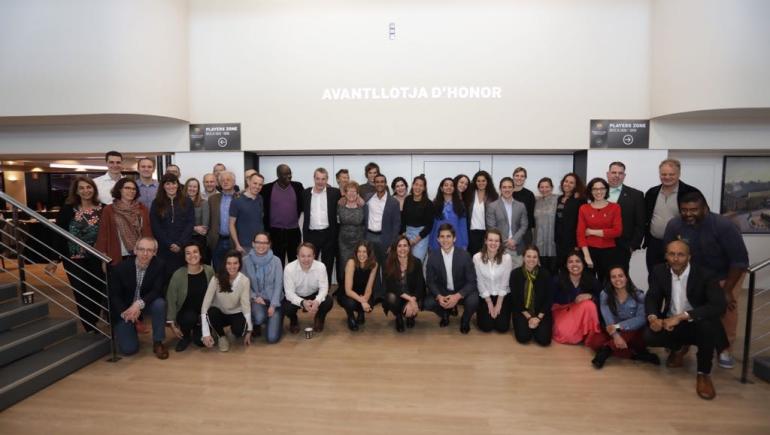The foundation of Barcelona Football Club is working with UNICEF on a new research project which aims to build an evidence base to support Sport for Development programmes around the world.
Sport, and physical activity in general, have long been promoted as an intervention tool when aiming to achieve social outcomes, and have been cited as contributing to the UN’s Sustainable Development Goals.
However the Sport for Development sector remains diffuse and hard to define, despite platforms such as sportanddev.org and connectsport.co.uk providing hubs and focusing attention on the sector, globally and for the UK respectively.
During April, a group of 40 international experts in sport, development and childhood gathered at Barcelona’s Camp Nou stadium to focus on one particular area - how sport can have a positive impact on the life of children.
A statement on the Barça Foundation website read: “The investigation of good practices, innovation, and the exchange of knowledge will help empower and protect the most vulnerable children.”
The research looks to understand how Sport for Development (S4D) initiatives can most effectively transform children’s lives and promote positive outcomes in four specific areas:
- Education
- Child protection
- Participation
- Social inclusion
Another article on the project, published on the UNICEF Office of Research Innocenti website, asked: “Can you measure the impact of sport?”
It stated: “Beyond physical well-being, UNICEF has long recognised that sport can have many additional beneficial effects for children. In fact, Article 31 of the Convention on the Rights of the Child enshrines the right of every child to play and recreational activities in a safe and healthy environment.
“(Sport for Development) is the use of sport as an instrument to positively impact social and personal development. Various S4D initiatives aim to achieve different objectives. Some initiatives aim to engage youth in sport to keep them away from harm, while others use sport to provide psycho-social support for children traumatized by war, disaster or exploitation. Still others use sport to engage youth and stimulate positive development of values, attitudes, and behaviour. Harnessing the power of S4D has many benefits when designing practices and policies, not least its relatively low cost and easy incorporation into existing programmes at all levels."
“However, sport remains an untapped tool for making positive change for children on a larger scale. Currently, a myriad of organisations use S4D initiatives to achieve positive child outcomes. The closure of the United Nations Office of Sports for Development and Peace in 2016 left a vacuum in the sector and reduced coordination between key S4D actors. While there are over 550 registered organisations, there is a lack of rigorous evidence on their impact. Action surrounding S4D outpaces the evidence base to support it. Unlocking the potential of S4D – and the investment to support it – requires quality evidence.
“Not only will this research help strengthen evidence on the impact of S4D initiatives, it will also facilitate cross-national learning, and may even help to re-invigorate sport as a development intervention. The research looks to understand how S4D initiatives can most effectively transform children’s lives and promote positive outcomes in four specific areas:
“Additionally, the research will identify both limitations and best practices in monitoring and evaluating S4D programmes and initiatives. The aim of this exploration is to identify the most effective initiatives, and the reasons for their success. This evidence base can help to harness the power of sport to transform the lives of children.”
The statement concluded: “The universal appeal of sport provides an important advantage for S4D based efforts to motivate, inspire and mobilise communities. UNICEF Innocenti’s research aims to provide a more consistent definition of S4D for the many organisations who are already using sport to improve children’s lives, as well as evidence to help governments position sport as a viable development initiative. S4D can help ensure that even the most marginalised children in the world can reach their full potential.”












